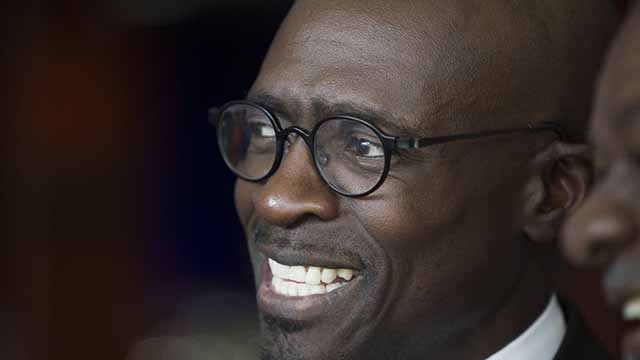
Given the gloomy political and economic environment in South Africa a great deal was expected from Finance Minister Malusi Gigaba’s first budgetary statement. The Conversation’s Sibonelo Radebe asked Owen Skae to rate the medium term budget statement
What are your general impressions of the speech?
The minister’s opening remarks were encouraging but in the final analysis, nothing profound came out of his speech.
The reference to a famous line Ben Okri’s poem was inspiring:
You can’t remake the world without remaking yourself.
By quoting the line the minister gave the impression that he and his team have been through a thorough introspection which is sorely needed given the state and direction of the ruling African National Congress (ANC) and the country. Corruption is steadily and surely eating away the future of South Africa.
Some say the minister did do some introspection. But his speech was vague and lacked the critical elements of taking responsibility and offering solutions. He offered little detail about how the country will get on the path to the kind of sustainable economic growth it so sorely needs.
What are the biggest challenges facing the country coming out of the speech?
South Africa’s problems are well known. Economic exclusion and unemployment tops the list. They can only be solved by significantly growing the economy. But I couldn’t find any detail about how the country is going to address these critical areas.
Growth prospects remain gloomy as captured in the minister’s own words. He revised 2017 economic growth downwards from 1.3% to 0.7%. And his projection shows growth remaining below the 2% mark over the next three years. This is far below the required growth of about 6% for the country to push back poverty and unemployment.
Poor economic performance is obviously symptomatic of deeper issues. But he didn’t tackle them. For example, there was a lack of urgency to deal with allegations of state capture, which has involved attempts by powerful individuals and groups to shape South Africa’s political and economic landscape through corrupt relationships and deals to benefit their own private interests. He also resurfaced the nuclear power deal. This will just make the rating agencies nervous.
His rhetoric around state owned enterprises is not convincing. We’ve heard it before. I’m afraid the old mantra ‘seeing is believing’ will guide many when it comes to his promise of fixing these troubled enterprises.
The minister did speak of a Youth Employment Service and a R1.5 billion small to medium enterprise development fund. But frankly speaking this doesn’t even begin to touch sides of what needs to be done.
He also faces the dual problem of declining revenue and increasing expenditure. This medium term budget projected a R50.8 billion tax revenue shortfall for the 2017/18 period which was described as “the largest downward revision since the 2009 recession”.
And he’s already dipped into the contingency reserves to recapitalise troubled state owned enterprises, South African Airways and the South African Post Office. And he faces an ever increasing demands for social expenditure.
So, there is talk of the disposal of assets. But why partially sell the crown jewels of Telkom and leave the problematic entities like power utility Eskom and South African Airways to further burden the taxpayer. That just fuels the view of cynics who believe government isn’t really committed to making the tough decisions the minister alluded to.
What do you think of the handling of educational funding matters?
I was half expecting the minister to announce something significant around the funding of education given the developments of the past few years. But he said almost nothing that will change the destructive course that the country’s education system finds itself in.
There was the routine statement about how allocation to the education sector is “the fastest growing element of expenditure over the medium term”. The allocation moves from R77 billion this year to R97 billion for the 2020/21 financial year. This increase looks significant but it doesn’t even begin to address the problems at hand – in particular the funding of higher education against a mass of students who can’t afford to pay their fees.
The problem has escalated because of a lack of leadership with government pussy footing around the issue. One can only conclude that government has no way of handling this hot political potato and has resorted to the poor tactic of kicking the can down the road.
All the minister said was that further announcements would be made in the 2018 Budget.
But this is no comfort for higher education institutions. They now have to approach next year with no idea about how they’re going to address the growing gaps in their financial forecasts.
In my view this should be South Africa’s greatest priority, especially as the student voices are being raised about this. I’m not getting the sense that government appreciates the gravity of the situation.
Source: https://theconversation.com/south-africas-finance-minister-fails-to-come-up-with-the-goods-86367
